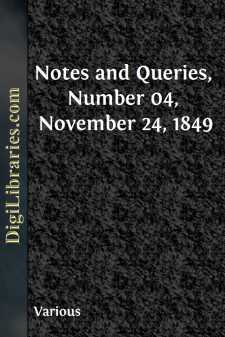Categories
- Antiques & Collectibles 13
- Architecture 36
- Art 48
- Bibles 22
- Biography & Autobiography 816
- Body, Mind & Spirit 145
- Business & Economics 28
- Children's Books 17
- Children's Fiction 14
- Computers 4
- Cooking 94
- Crafts & Hobbies 4
- Drama 346
- Education 58
- Family & Relationships 59
- Fiction 11834
- Foreign Language Study 3
- Games 19
- Gardening 17
- Health & Fitness 34
- History 1378
- House & Home 1
- Humor 147
- Juvenile Fiction 1873
- Juvenile Nonfiction 202
- Language Arts & Disciplines 89
- Law 16
- Literary Collections 686
- Literary Criticism 179
- Mathematics 13
- Medical 41
- Music 40
- Nature 179
- Non-Classifiable 1768
- Performing Arts 7
- Periodicals 1453
- Philosophy 66
- Photography 2
- Poetry 897
- Political Science 203
- Psychology 45
- Reference 154
- Religion 516
- Science 126
- Self-Help 85
- Social Science 82
- Sports & Recreation 34
- Study Aids 3
- Technology & Engineering 59
- Transportation 23
- Travel 463
- True Crime 29
Our website is made possible by displaying online advertisements to our visitors.
Please consider supporting us by disabling your ad blocker.
Notes and Queries, Number 04, November 24, 1849
by: Various
Categories:
Description:
Excerpt
NOTES
LATIN EPIGRAM AGAINST LUTHER AND ERASMUS.
Mr. Editor,—Your correspondent "Roterodamus" (pp. 27, 28) asks, I hope, for the author of the epigram which he quotes, with a view to a life of his great townsman, Erasmus. Such a book, written by some competent hand, and in an enlarged and liberal spirit, would be a noble addition to the literature of Europe. There is no civilised country that does not feel an interest in the labours and in the fame of Erasmus. I am able to answer your correspondents question, but it is entirely by chance. I read the epigram which he quotes several years ago, in a book of a kind which one would like to see better known in this country—a typographical or bibliographical history of Douay. It is entitled, "Bibliographie Douaisienne, ou Catalogue Historique et Raisonné des Livres imprimés à Douai depuis l'année 1563 jusqu'a nos jours, avec des notes bibliographiques et littéraires; Par H.R. Duthilloeul. 8vo. Douai, 1842." The 111th book noticed in the volume is entitled, "Epigrammata in Hæreticos. Authore Andrea Frusio, Societatis Jesu. Tres-petit in 8vo. 1596." The book is stated to contain 251 epigrams, "aimed," says M. Duthilloeul, "at the heretics and their doctrines. The author has but one design, which is to render odious and ridiculous, the lives, persons, and errors of the apostles of the Reformation." He quotes three of the epigrams, the third being the one your correspondent has given you. It has this title, "De Lutheri et Erasmi differentia," and is the 209th epigram in the book.
I have never met with a copy of the work of Frusius, nor do I know any thing of him as an author. The learned writer who pours out a store of curious learning in the pages of Gentleman's Magazine is more likely than any body that I know to tell you something about him.
Mons. Duthilloeul quotes another epigram from the same book upon the Encomium Moriæ, but it is too long and too pointless for your pages. He adds another thing which is more in your way, namely, that a former possessor of the copy of the work then before him had expressed his sense of the value of these "epigrammes dévotes" in the following NOTE:—
"Nollem carere hoe libello auro nequidem contra pensitato."
Perhaps some one who possesses or has access to the book would give us a complete list of the persons who are the subjects of these defamatory epigrams. And I may add, as you invite us to put our queries, Is not Erasmus entitled to the distinction of being regarded as the author of the work which the largest single edition has ever been printed and sold? Mr. Hallam mentions that, "in the single year 1527, Colinæus printed 24,000 copies of the Colloquies, all of which were sold." This is the statement of Moreri. Bayle gives some additional information. Quoting a letter of Erasmus as his authority, he says, that Colinæus, who—like the Brussels and American reprinters of our day—was printing the book at Paris from a Basle edition, entirely without the concurrence of Erasmus, and without any view of his participation in the profit, circulated a report that the book was about to be prohibited by the Holy See....












